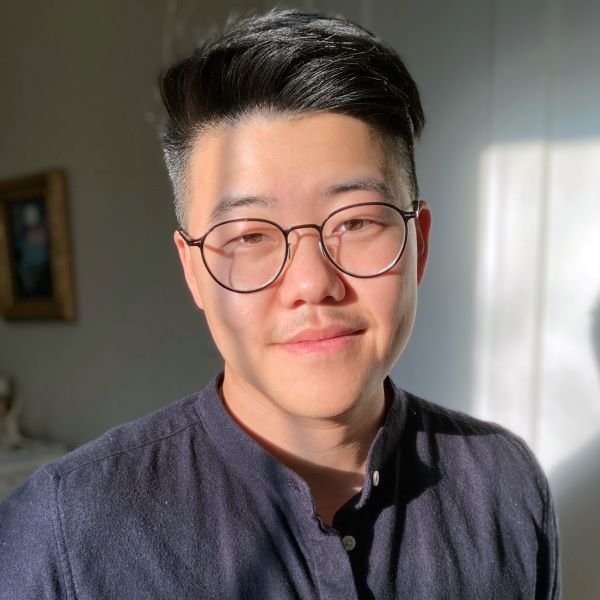Interview with Yanyi, the 2023 Elinor Benedict Poetry Prize judge
“A good poem breaks the trance of the ordinary with the ordinary.”
Associate Poetry Editor Sally Geiger: You've spoken before about your experience of literature being a communal one. What can poems do to care for the people around them?
Yanyi: One could say that poems are the portable spirit. One may sing out of tune or draw tentatively, but poems can be recreated with the spoken word, or the silent voice that sings in the mind. Poems are communal in the way that conversations are communal—they require nothing more of us than language and creativity. A poem can break up punctuation, even words, but even these ruptures are against a set of rules one already has, more or less. A good poem breaks the trance of the ordinary with the ordinary.
Previously, I’ve said that language sediments—its shape is made of revisions (and indecisions), haunted by many others choosing, together and apart, that this means that. Literature holds the voices that life cannot. And its incompletions remind us that it is no substitute, either. I love literature, but the best of it tells me that it is not life.
SG: In The Year of Blue Water, I was struck by the continued use of the block text. The poems seem to gesture (for me) toward a kind of trans poetics in their stretching and repetition of a singular form, and I wonder if you find the trans experience of gender informs the formal poetic choices you make?
Yanyi: The poetry precedes for me, I think. Years of working toward image, sound, and epiphany had limited my ability to explore my mind. The Year of Blue Water came out of a search for a form in which I felt total freedom of thought. I don’t think I would have come to that clarity around my gender without that clarity of consciousness. The body is a form too.
Dream of the Divided Field has its share of prose both long and short, but also other explorations in long and short lineated forms, historical and not. Giving myself permission to go another way in The Year of Blue Water was difficult. There are all sorts of career stratagems that must fall to the wayside—and you can extend that to gender. But now I practice being free. And that freedom shows up in my willingness, and need, to change forms from book to book.
SG: What is it about a poem that makes it special? What does a specific poem do that keeps it turning over in your head?
Yanyi: A good poem is water to a dowsing rod. It’s an undercurrent of one’s life right now, yet something outside of it entirely. Once you have it, it changes the landscape you’re on.
A true poem requires will and work to get to. Decent poets can feel it, even hear it; skillful poets see the source and, at best, try to recount what was witnessed.
For me, poetry is an artifact of a sacred experience. It is not the poems that matter. They are maps, crudely drawn, of the deeper thing. And so much of it is beyond, and will forever be beyond. What I love in writing is the attempt: the practice of drawing closer with all of my being.
Yanyi is the author of Dream of the Divided Field (One World 2022) and The Year of Blue Water (Yale 2019), winner of the 2018 Yale Series of Younger Poets Prize. His work has been featured in or at NPR’s All Things Considered, New York Public Library, Tin House, Granta, and A Public Space. The recipient of fellowships from Asian American Writers’ Workshop and Poets House, he was a curatorial assistant at the Poetry Project and holds an MFA in Poetry from New York University. From 2016-2021, he was the poetry editor at Foundry. He wrote the creative writing advice column,The Reading, from 2020-2022. Most recently, he is the recipient of a 2023 Vermont Arts Council Grant and a 2022 Tanne Foundation Award. He teaches creative writing at large.




